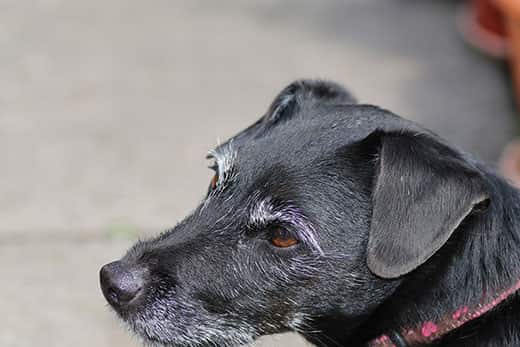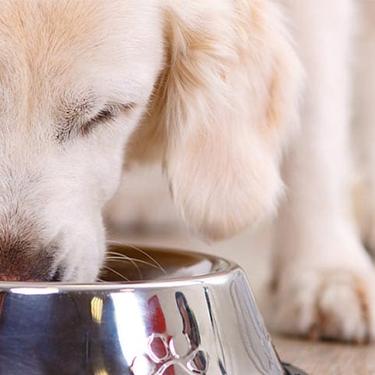
-
Find the right food for your pet
Take this quiz to see which food may be the best for your furry friend.
Find the right food for your pet
Take this quiz to see which food may be the best for your furry friend.
Featured products
 Small & Mini Savory Stew with Chicken & Vegetables Dog Food
Small & Mini Savory Stew with Chicken & Vegetables Dog FoodA delicious complement to the nutrition of Science Diet Small & Mini 7+ dog food
Shop Now Adult Healthy Cuisine Roasted Chicken, Carrots & Spinach Stew Dog Food
Adult Healthy Cuisine Roasted Chicken, Carrots & Spinach Stew Dog FoodDelicious roasted chicken paired with tender vegetables in a succulent stew
Shop Now Adult 7+ Perfect Digestion Chicken, Whole Oats & Brown Rice Recipe Dog Food
Adult 7+ Perfect Digestion Chicken, Whole Oats & Brown Rice Recipe Dog FoodScience Diet's breakthrough nutrition supports ultimate digestive well-being & healthy microbiome for dogs age 7+
Shop NowFeatured products
 Adult 7+ Tender Tuna Dinner Cat Food
Adult 7+ Tender Tuna Dinner Cat FoodWith delicious chunks in a decadent gravy
Shop Now Adult 7+ Senior Vitality Chicken & Vegetable Stew Cat Food
Adult 7+ Senior Vitality Chicken & Vegetable Stew Cat FoodImproves Everyday Ability to Get Up & Go
Shop Now Adult Savory Entrée Can Variety Pack Cat Food
Adult Savory Entrée Can Variety Pack Cat FoodPrecisely balanced nutrition with the delicious taste of savory minced chicken to help fuel the energy needs of cats during the prime of their life
Shop Now -
Dog
- Dog Tips & Articles
-
Health Category
- Weight
- Food & Environmental Sensitivities
- Urinary
- Digestive
- Joint
- Kidney
-
Life Stage
- Puppy Nutrition
- Adult Nutrition
- Senior Nutrition
Cat
- Cat Tips & Articles
-
Health Category
- Weight
- Skin & Food Sensitivities
- Urinary
- Digestive
- Kidney
-
Life Stage
- Kitten Nutrition
- Adult Nutrition
Featured articles
 Why Are Dogs and Cats So Cute?
Why Are Dogs and Cats So Cute?If waggy puppy dog tails and furry kitten yawns make you swoon, you're not alone. Why are cats so cute? And, dogs too! Let's find out!
Read More Do Dogs and Cats have Belly Buttons?
Do Dogs and Cats have Belly Buttons?Learn whether cats & dogs have belly buttons like humans, what the function is, and if there are any health concerns associated with it.
Read More Does My Pet Hate Me?
Does My Pet Hate Me?Learn tips for bonding with your pet if you've ever thought, 'My dog doesn't like me, or 'Why do I have a standoffish cat?'
Read More -


As a pet parent with an adopted dog, you might not know your dog's exact age. And now his hair, especially around his muzzle, is turning gray. Does a gray muzzle mean he's becoming a senior dog? Or is it a sign that something is wrong?
Gray hair on a dog's face and around his muzzle is a natural occurrence as he ages — just like turning gray is a natural occurrence for humans. Because dogs age faster than humans, they turn gray sooner than their pet parents. And just like humans, some dogs turn gray much earlier in life than others.
Behavior and Health Link
While typically a sign of an aging dog, a gray muzzle can also be found in dogs as young as one year old. A study of 400 dogs, published in Applied Animal Behaviour Science, discovered that dogs that experience high levels of anxiety, are impulsive or have fearful responses to strange people, animals and noises are linked to premature graying — not much different to when you hear people say things like, "you're the reason I am going gray."
A graying muzzle may also indicate a health issue. For instance, premature graying of the muzzle is one sign your dog might have hypothyroidism. Because it could be health-related, you should consult with your veterinarian if your dog starts graying.



Tasty Tips
Senior Years
Typically, a graying muzzle or face is a sign your dog is entering his senior years. Typically, dogs enter their senior years between the ages of seven and ten, but depending on your dog's size it might be even younger. For instance, giant breed dogs (those that weight 91 pounds or more) can be considered senior by the time they turn five, according to the American Veterinary Medical Association (AVMA). Small and medium breeds (up to 50 pounds) can be considered a senior at around age seven. Genetics plays a large roll in the graying process of your dog as certain breeds or lineages have a predisposition for graying earlier than others. It's also a lot easier to notice a gray muzzle on a dog with darker hair than say a West Highland white terrier.
Dogs that have reached their senior years may benefit from switching to a senior dog food. While it doesn't reverse the causes of graying in your dog, the best senior formulated dog foods offer a nutritional formula that works to ease the effects of aging. For instance, Hill's® Science Diet® Youthful Vitality was developed with the changing biology of pets ages seven and above in mind. The breakthrough nutrition found in the Science Diet® food is made with Hill's proprietary recipe of natural ingredients including fruits, vegetables, fatty acids and antioxidants plus added vitamins, minerals and amino acids — all of which work together to fight the effects of aging. Its formula is designed to help with brain function, energy and vitality and healthy immune and digestive systems. It also includes essential fatty acids that promote a coat with increased shininess and softness.
Going gray — for whatever reason — might give your dog a new look. But he will still thrive on the same love and attention he's always wanted from you!


Kara Murphy is a freelance writer and pet parent who lives in Erie, Pa. She has a goldendoodle named Maddie.
Related products
Related articles

Learn the the dangers of feeding your dog chocolate, which types are most dangerous, and what to do if you discover that they have consumed chocolate.

Proper nutrition for your pregnant or nursing dog is vital to her and her puppy's health. Learn what you should do provide her with the proper nutrients.

Learn about choosing the right dog food to help ensure your adult dog will receive the correct balance of nutrition.

Learn how today's wet dog food blends have gotten a face lift, and how you'll provide your dog the nutrition he needs in the form he loves.

Put your dog on a diet without them knowing
Our low calorie formula helps you control your dog's weight. It's packed with high-quality protein for building lean muscles, and made with purposeful ingredients for a flavorful, nutritious meal. Clinically proven antioxidants, Vitamin C+E, help promote a healthy immune system.
Put your dog on a diet without them knowing
Our low calorie formula helps you control your dog's weight. It's packed with high-quality protein for building lean muscles, and made with purposeful ingredients for a flavorful, nutritious meal. Clinically proven antioxidants, Vitamin C+E, help promote a healthy immune system.

